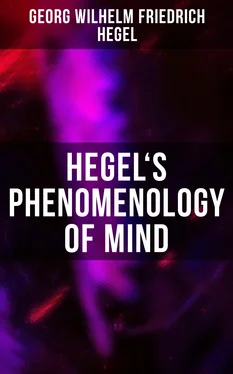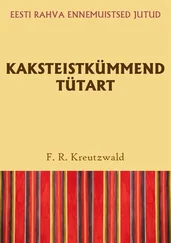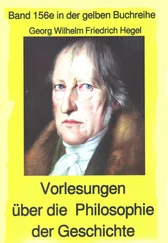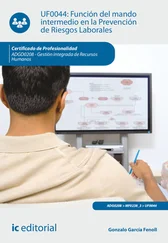Since we started from the first immediate unity, and returned through the moments of form-determination, and of process, to the unity of both these moments, and thus again back to the first simple substance, we see that this reflected unity is other than the first. As opposed to that immediate unity, the unity expressed as a mode of being, this second is the universal unity, which holds all these moments sublated within itself. It is the simple genus, which in the movement of life itself does not exist in this simplicity for itself; but in this result points life towards what is other than itself, namely, towards Consciousness for which life exists as this unity or as genus.
This other life, however, for which the genus as such exists and which is genus for itself, namely, self-con-sciousness, exists in the first instance only in the form of this simple, essential reality, and has for object itself qua pure Ego. In the course of its experience, which we are now to consider, this abstract object will grow in richness, and will be unfolded in the way we have seen in the case of life.
The simple ego is this genus, or the bare universal, for which the differences are insubstantial, only by its being the negative essence of the moments which have assumed a definite and independent form. And self-consciousness is thus only assured of itself through sublating this other, which is presented to self-consciousness as an independent life; self-consciousness is Desire . Convinced of the nothingness of this other, it definitely affirms this nothingness to be for itself the truth of this other, negates the independent object, and thereby acquires the certainty of its own self, as true certainty, a certainty which it has become aware of in objective form.
In this state of satisfaction, however, it has experience of the independence of its object. Desire and the certainty of its self obtained in the gratification of desire, are conditioned by the object; for the certainty exists through cancelling this other; in order that this cancelling may be effected, there must be this other. Self-consciousness is thus unable by its negative relation to the object to abolish it; because of that relation it rather produces it again, as well as the desire. The object desired is, in fact, something other than self-consciousness, the essence of desire; and through this experience this truth has become realized. At the same time, however, self-consciousness is likewise absolutely for itself, exists on its own account; and it is so only by sublation of the object; and it must come to feel its satisfaction, for it is the truth. On account of the independence of the object, therefore, it can only attain satisfaction when this object itself effectually brings about negation within itself The object must per se effect this negation of itself, for it is inherently ( an sich ) something negative, and must be for the other what it is. Since the object is in its very self negation, and in being so is at the same time independent, it is Consciousness. In the case of life, which is the object of desire, the negation eithe r lies in an other, namely, in desire, or takes the form of determinateness standing in opposition to an other external individuum indifferent to it, or appears as its inorganic general nature. The above general independent nature, however, in the case of which negation takes the form of absolute negation, is the genus as such or as self-consciousness. Self-consciousness attains its satisfaction only in another self-consciousness.
It is in these three moments that the notion of self-consciousness first gets completed: ( a ) pure undifferentiated ego is its first immediate object. ( b ) This immediacy is itself, however, thoroughgoing mediation; it has its being only by cancelling the independent object, in other words it is Desire. The satisfaction of desire is indeed the reflexion of self-consciousness into itself, is the certainty which has passed into objective truth. But ( c ) the truth of this certainty is really twofold reflexion, the reduplication of self-consciousness. Consciousness has an object which implicates its own otherness or affirms distinction as a void distinction, and therein is independent. The individual form distinguished, which is only a living form, certainly cancels its independence also in the process of life itself; but it ceases along with its distinctive difference to be what it is. The object of self-consciousness, however, is still independent in this negativity of itself; and thus it is for itself genus, universal flux or continuity in the very distinctiveness of its own separate existence; it is a living self-consciousness.
A self-consciousness has before it a self-consciousness. Only so and only then is it self-consciousness in actual fact; for here first of all it comes to have the unity of itself in its otherness. Ego which is the object of its notion, is in point of fact not ” object “. The object of desire, however, is only independent, for it is the universal, ineradicable substance, the fluent self-identical essential reality. When a self-consciousness is the object, the object is just as much ego as object.
With this we already have before us the notion of Mind or Spirit . What consciousness has further to become aware of, is the experience of what mind is — this absolute substance, which is the unity of the different self-related and self-existent self-consciousnesses in the perfect freedom and independence of their opposition as component elements of that substance: Ego that is “we”, a plurality of Egos, and “we” that is a single Ego. Consciousness first finds in self-consciousness — the notion of mind — its turning-point, where it leaves the parti-coloured show of the sensuous immediate, passes from the dark void of the transcendent and remote super-sensuous, and steps into the spiritual daylight of the present.
10.Cp. Propädeutik , p. 84 ff.
11.Cp. Hegel’s Logik , T. II. Absch. 3. Kap. I.-“das Leben.”
A. Independence and Dependence of Self-Consciousness Lordship and Bondage
Table of Contents
[The selves conscious of self in another self are, of course, distinct and separate from each other. The difference is, in the first instance, a question of degree of self-assertion and self-maintenance: one is stronger, higher, more independent than another, and capable of asserting this at the expense of the other. Still, even this distinction of primary and secondary rests ultimately on their identity of constitution; and the course of the analysis here gradually brings out this essential identity as the true fact. The equality of the selves is the truth, or completer realization, of self in another self; the affinity is higher and more ultimate than the disparity. Still, the struggle and conflict of selves must be gone through in order to bring out this result. Hence the present section.
The background of Hegel’s thought is the remarkable human phenomenon of the subordination of one self to another which we have in all forms of servitude — whether slavery, serfdom, or voluntary service. Servitude is not, only a phase of human history, it is in principle a condition of the development and maintenance of the consciousness of self as a fact of experience.]
Self-consciousness exists in itself and for itself, in that, and by the fact that it exists for another self-consciousness; that is to say, it is only by being acknowledged or “recognized”. The conception of this its unity in its duplication, of infinitude realizing itself in self-consciousness, has many sides to it and encloses within it elements of varied significance. Thus its moments must on the one hand be strictly kept apart in detailed distinctiveness, and, on the other, in this distinction must, at the same time, also be taken as not distinguished, or must always be accepted and understood in their opposite sense. This double meaning of what is distinguished lies in the nature of self-consciousness:-of its being infinite, or directly the opposite of the determinateness in which it is fixed. The detailed exposition of the notion of this spiritual unity in its duplication will bring before us the process of Recognition.
Читать дальше












